Best known as one of the oldest states in Europe, Bulgaria is a smaller nation that was once an empire. Famous for being the homeland of yogurt as well as one of the world’s largest producers of lavender and rose oil, exploring this nation will leave you with memories for years to come.
Although not as popular among tourists as other nearby countries, Bulgaria is home to multiple UNESCO world heritage sites as well as a stunningly diverse landscape. A destination worth visiting, Bulgaria also boasts a plethora of natural mineral springs, more than any other in continental Europe.
добре дошли – Welcome to Bulgaria!
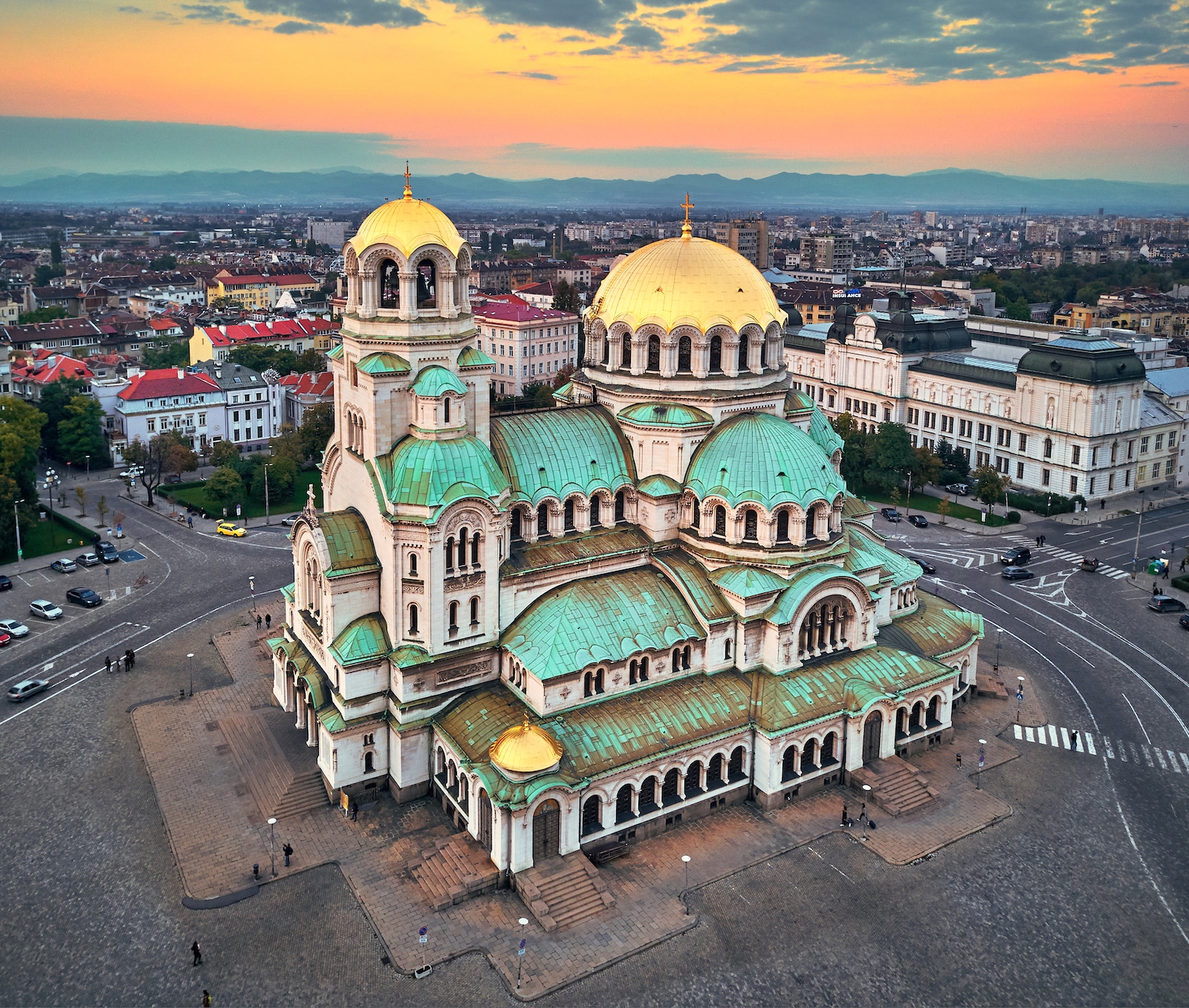
Home to fortresses, ruins, caves, and tombs from the days of the Thracians, Romans, Persians, Ottomans, Celts, and Macedonians, Bulgaria is a nation that once was an empire. Falling to Ottoman Rule before returning to independence, the unique blend of ancient civilizations has made Bulgaria one of the most culturally diverse countries in Europe.
A place where history comes alive, the country’s landscape is as diverse as its past. Famous for its coast, which meets the Black Sea, the interior parts of the country are home to gentle mountains, raging rivers, and endless forests. Offering great hiking and biking in the summer, the country’s slopes become a playground for skiers and snowboarders during the winter.
Far from the coast and nestled in the mountains is Sofia, Bulgaria’s capital city. A mix of the past and present gives life to Sofia’s streets, where visitors can explore iconic onion domes, mosques, and monuments. Roman ruins were found within the city limits, which are estimated to be 2,000 years old.
Yet, even with all the historical gems, Sofia is a modern mini-metropolis. New-age galleries, clubs, and restaurants fill the streets. Just outside the city limits is Mount Vitosha, which is a hotspot for hikers and skiers.
- Culture and Language
- Spending Budget
- How to Get Around
- Top Cities to Visit
- Points of Interest
Culture and Language
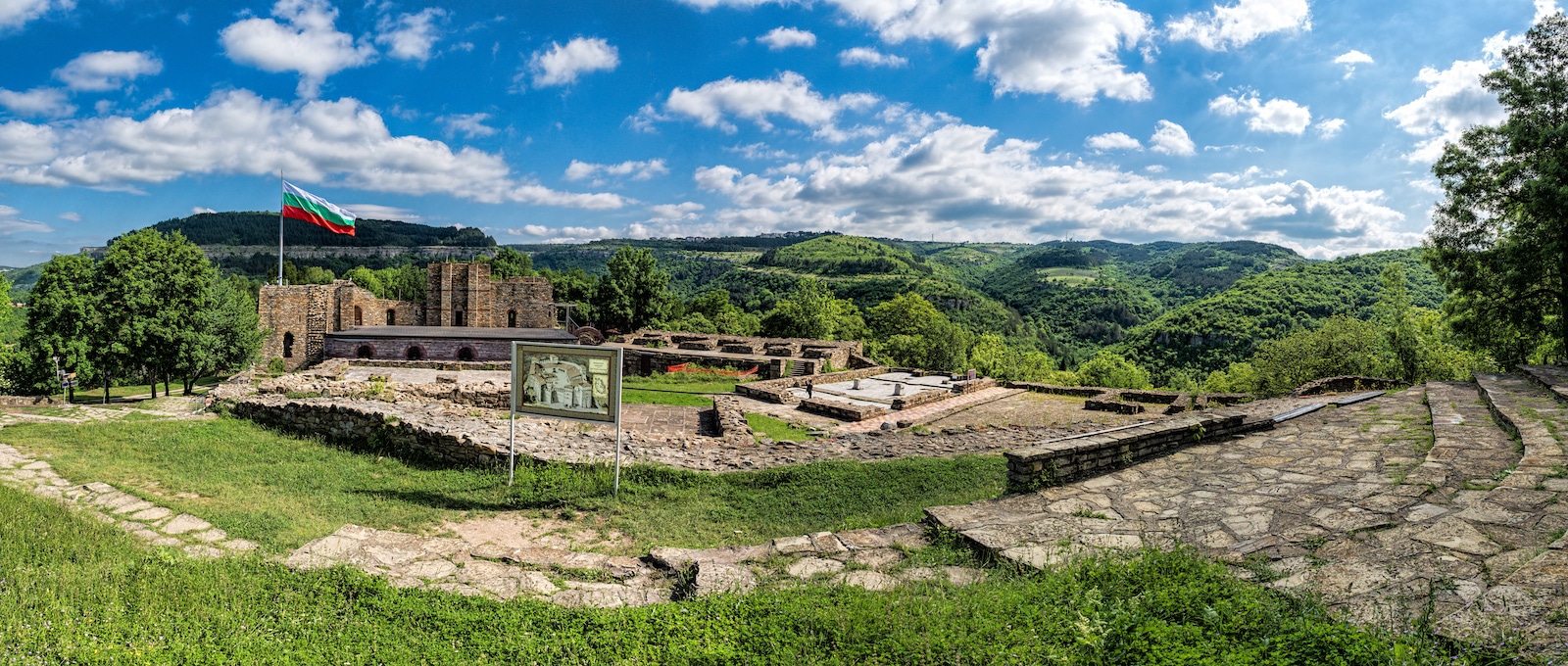
With evidence of hominids living in the area since 1.4 million years ago, Bulgaria has a long history. Details of the past are blurry, but what’s recorded began with an early civilization in 5000 BC. The Thracians appeared in the books by 3000 BC and lasted until about 46 BC, which is when they were conquered by the Roman Empire.
Bulgaria History
In the second half of the 7th century, Bulgaria made a peace treaty with Byzantine, which allowed the nation to prosper and begin establishing the First Bulgarian Empire. By the 11th century, Byzantine returned to attack Bulgaria with the help of the Rus people.
The Byzantine Empire ruled until 1185 when an uprising by two brothers in Bulgaria led to the formation of the Second Bulgarian Empire. In 1396, Bulgaria fell to the Ottoman Empire which ruled for 500 years. Eventually, by the 1700s, the Ottoman Empire had fallen, and this led to the liberation of Bulgaria and the development of the Third Bulgarian State.
The 20th century in Bulgaria was rough and the country faced not only the Balkan Wars but also the two World Wars. The economy was hanging on by a thread and it was only weakened by Stalin who had become close friends with Bulgaria’s Communist leader.
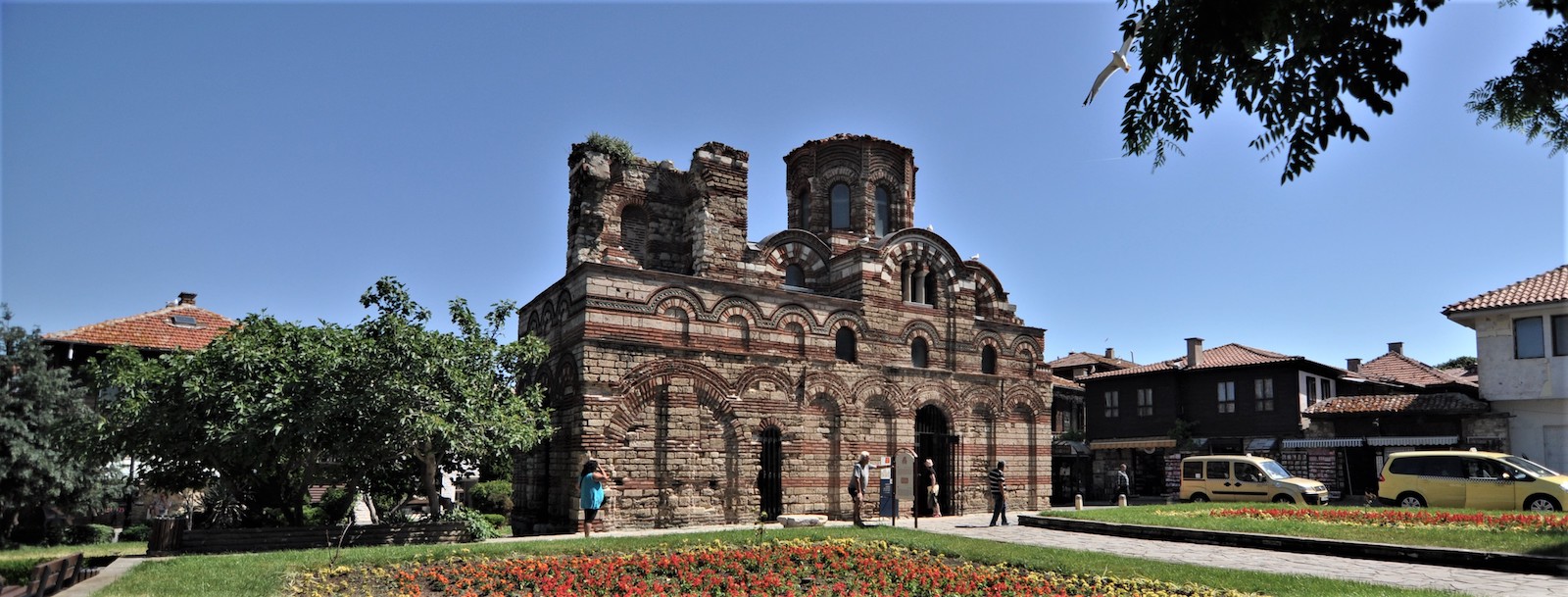
While Communism was left in the past, the country still struggles to develop. Corruption is present throughout the country, which led to widespread protests in the summer of 2020. Yet, Bulgarians remain proud of their history and heritage.
Bulgarian Culture
Despite numerous empires and countries controlling Bulgaria, the people have remained positive. While reserved, Bulgarians are naturally curious about visitors and most will welcome you with open arms. Travelers who get to know the locals often comment on their wit and humor.
The culture is quite traditional with a patriarchal and religious society. Men and women are separated by old-fashioned ideologies including the idea that women stay at home. Christianity is the dominant religion in Bulgaria with many of the Orthodox churches displaying the famous onion domes.
Official Language
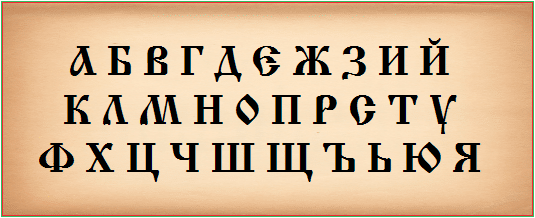
Language is another part of the culture and in Bulgaria, the local language dates back to the 9th century. Bulgarian is a South Slavic language, which has developed in three phases; Old, Middle, and Modern Bulgarian.
Almost 85% of the country’s 6.89 million citizens (as of 2021) speak Bulgarian, with the rest speaking either Turkish or Romani.
English is spoken within the country, but it is not yet widespread. Travelers will most likely encounter English speakers in tourist areas or Sofia, the capital city. It’s estimated that 25% of Bulgaria can speak English, so if you’re planning to visit rural areas, you shouldn’t expect to hear it often.
Spending Budget

In Bulgaria, the smaller tourist crowds make the country more affordable. Most European destinations are very expensive to visit, but an exception to that list is Bulgaria. Travelers with budgets of all sizes can afford a trip to Bulgaria to enjoy the country’s untouched beauty.
For a detailed glimpse at what a trip to Bulgaria might cost, travelers can make a spending budget outline to cover the cost of their basic needs. A spending budget will include the price of your flight, accommodation, food, drink, and transportation.
These are the most important categories that you will spend money on in Bulgaria, so it is good to be prepared and know how much things cost.
Airfare
For the vast majority of travelers, the most expensive part of their trip to Bulgaria will be the cost of their flight. If you’re leaving from the United States, you can expect to pay nearly one thousand dollars, although there are deals to drop that price.

The price of airline tickets will also fluctuate throughout the year with the most expensive months to visit being April and May. December and January also see a spike in prices because of the winter holidays.
Accommodations
After you have made a reservation with an airline, it is important to start looking at booking your accommodation. During the peak tourist season, hostels and hotels will quickly fill up, which makes online reservations a great way to secure your accommodation and set a good price.
Backpackers will find that the most affordable accommodation options in Bulgaria are dorm rooms in hostels, which will vary in price depending if you’re staying in a larger or smaller city.
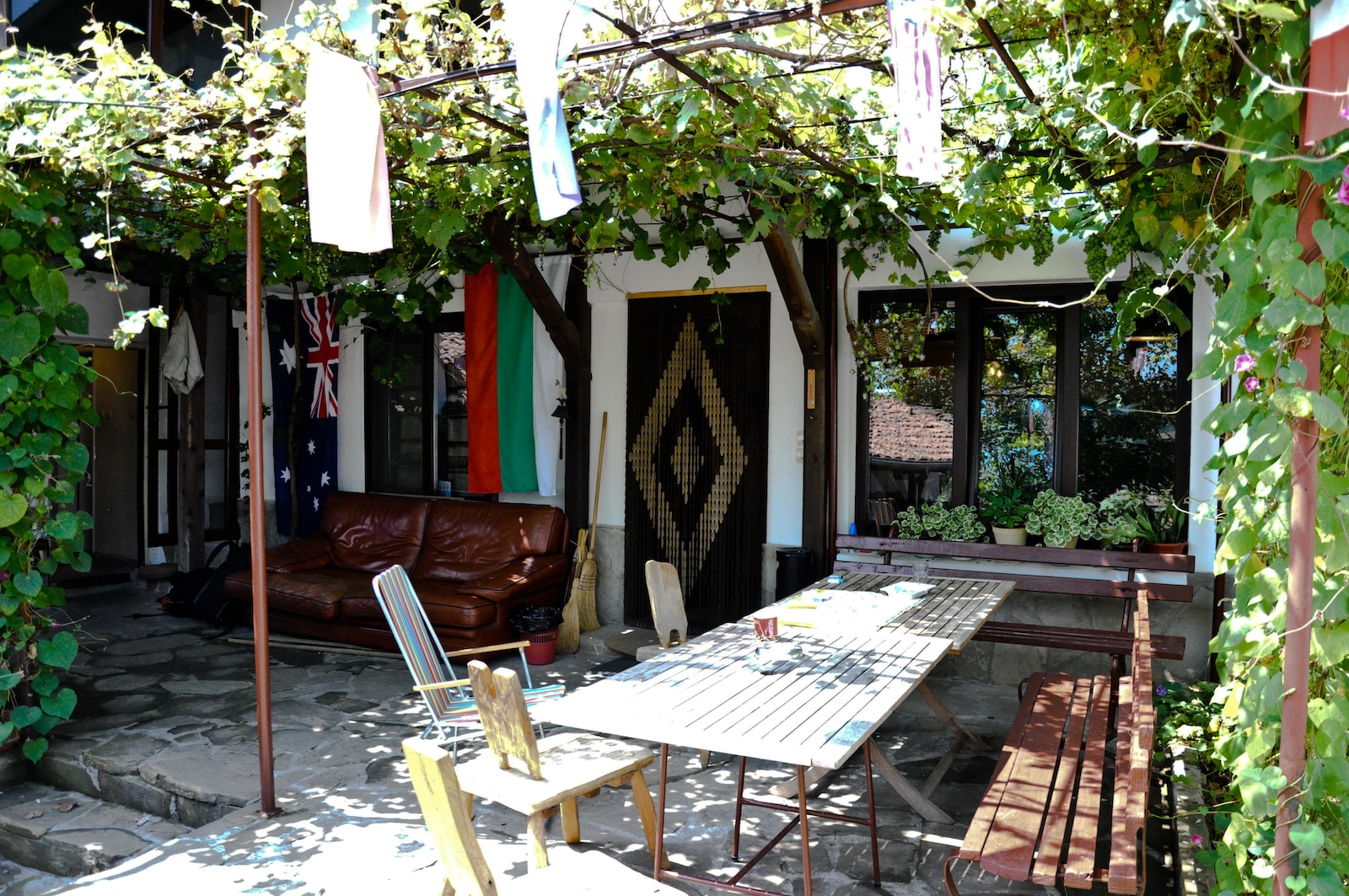
For more privacy, guest houses are another affordable option that travelers can use when visiting the country. For travelers with a bigger budget, mid-range hotels are widely available throughout the country and they aren’t too expensive.
Luxury accommodation in Bulgaria will be significantly more expensive but come with all the amenities you need to feel comfortable. Top-end hotels will require you to increase your budget or look for other areas that you can save in to offset the cost.
Bulgarian Food
With your accommodation booked, the next parts of your budget will be spent while you’re in Bulgaria. Most hotels do not provide any meals, but some may include a light breakfast. For most travelers, the cost of food is essential to consider to ensure that they have enough cash to eat out when they’re in Bulgaria.
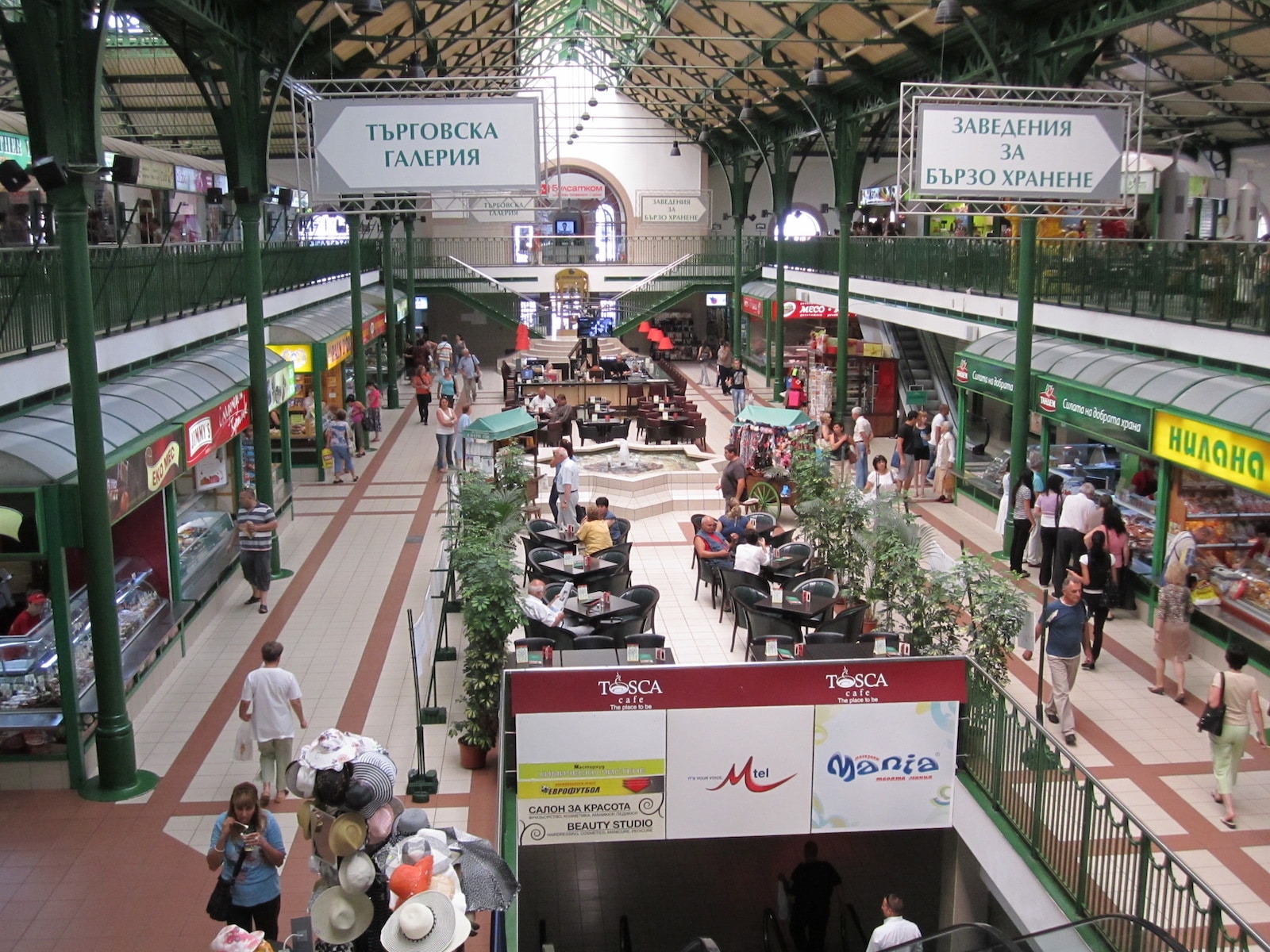
You may be unfamiliar with Bulgarian cuisine, but most people will love its ingredients. Dairy and freshly grown vegetables are staples of the local diet and are topped with meat and seafood. Along the coast, fish is a popular ingredient but, in the mountains, veal and lamb are the most chosen ingredients.
For a boost of fresh flavor, shopska salad is a popular choice amongst locals. The salad consists of diced cucumber, tomato, peppers, and onions, before being topped off with cheese.
Another dish that features cucumbers and one that is more reminiscent of Greek flavors is tarator soup, which is made with fresh yogurt, cucumbers, and garlic, that’s topped with olive oil. Tripe soup is also popular in Bulgaria and is called shkembe chorba.
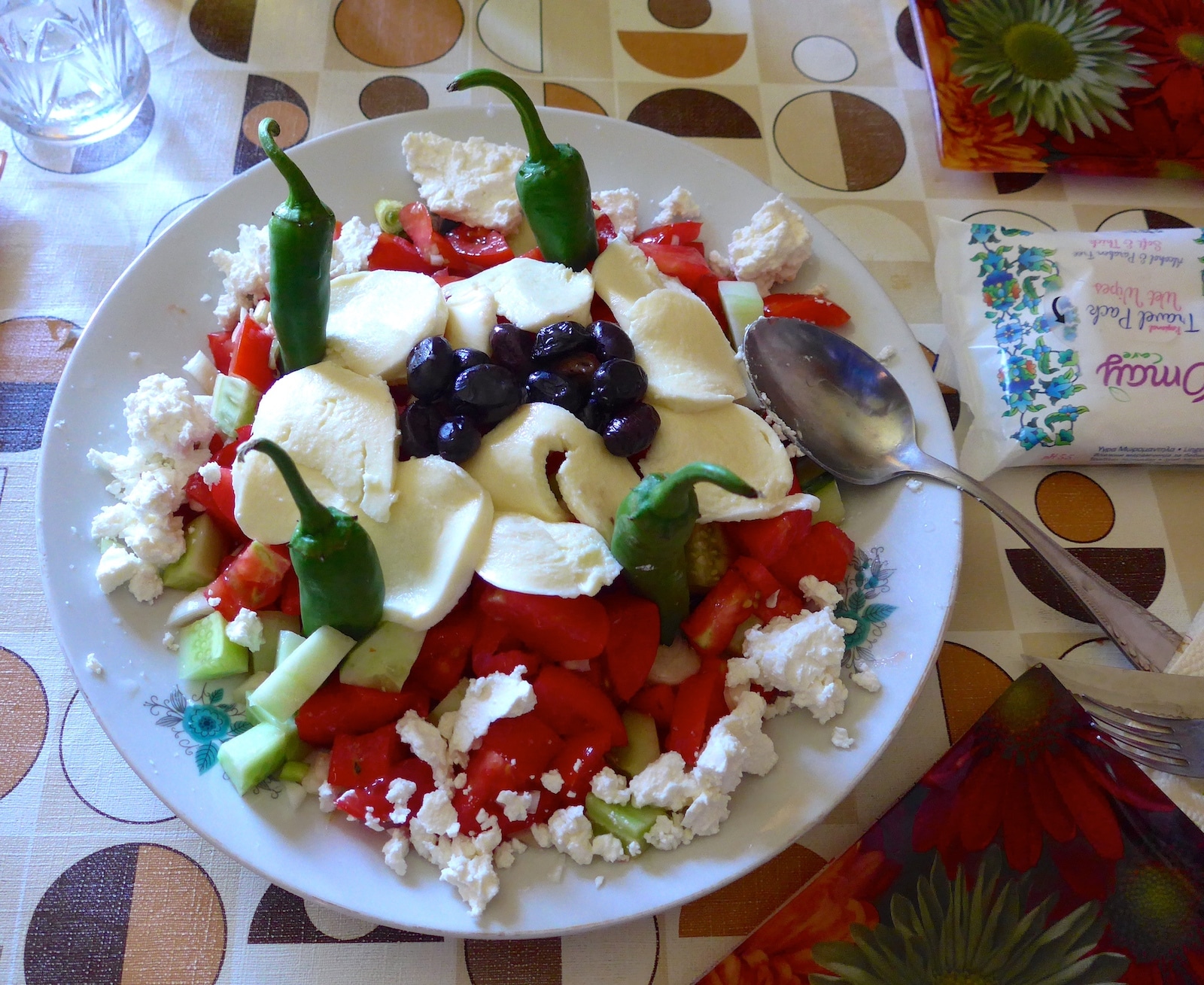
For a classic meal, you should try kebapche, which is like a meatball dish with fries and salad. One of the heaviest dishes but one that is delicious is called guyveche. Gyuveche combines eggs with cheese and is baked in a clay pot. Onions and peppers are thrown into the mix to add flavor and a little mild spice.
Sweeter dishes include palacinka, which is Bulgaria’s take on pancakes. Thinner than American pancakes, palacinka is similar to an extra-large crepe. The pancakes can be filled with sweet or savory ingredients to change the flavor. Made of phyllo dough, bansita is a pastry that is often eaten for breakfast or dessert.
Finally, a staple dish throughout Southeast Europe, including Bulgaria, is baklava. The sticky honey and layers of the fine pastry make baklava the perfect dessert or snack.
Dining Out

The good news is that travelers don’t have to break the bank to dine out in Bulgaria. Food is very affordable and even the most expensive restaurants will charge a moderate amount for a meal.
However, more affordable prices can be found at local restaurants outside touristy areas. Cafeterias as the most affordable dining option.
Alcohol is not included in the price of meals, but it can be purchased inexpensively. Most drinks, like beer, will cost a few dollars, although a glass of wine or cocktail will be a touch more expensive. If you are drinking in a group, purchasing a few bottles of wine will be the best option.
How to Get Around
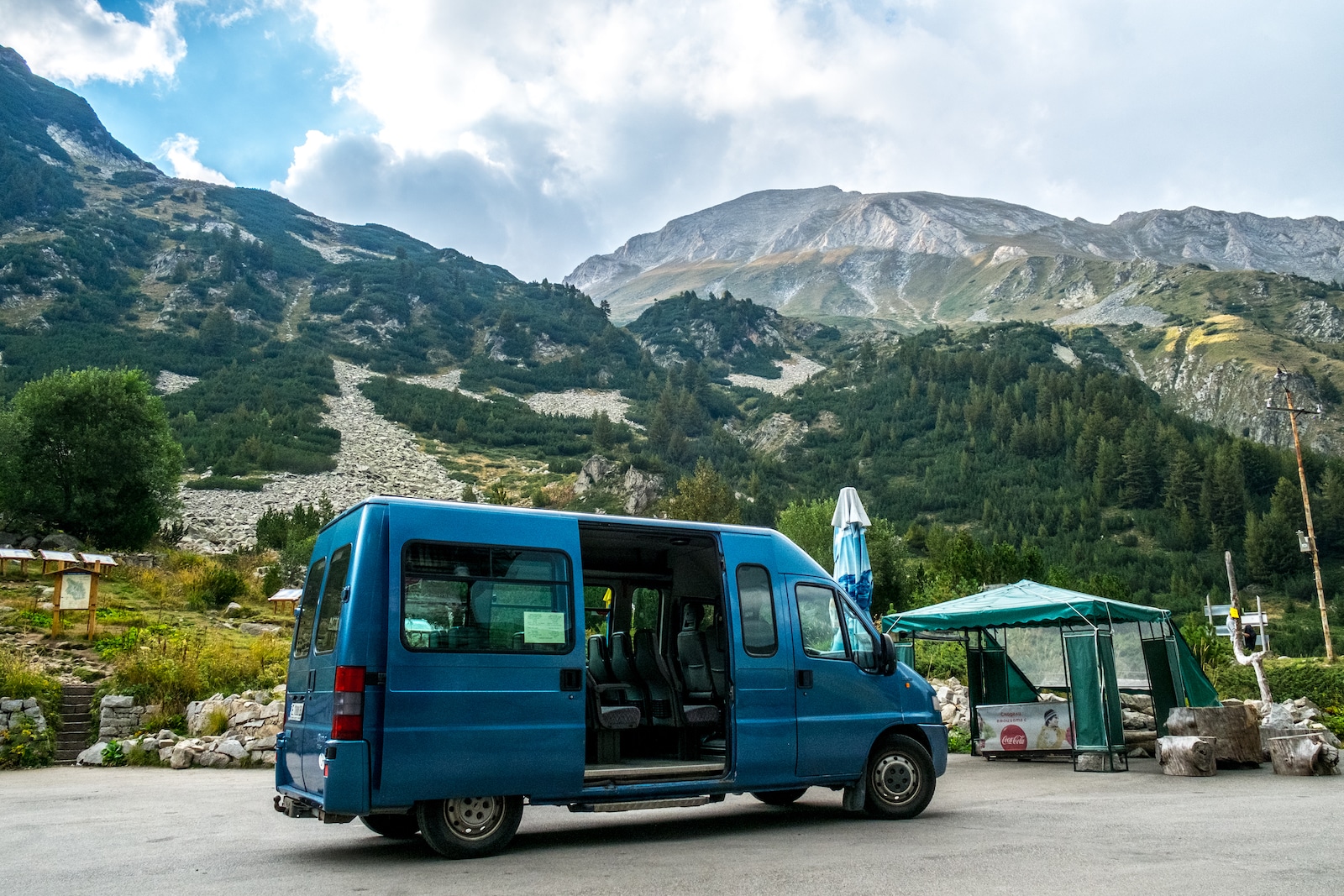
When it comes to getting around Bulgaria, it isn’t exactly planes, trains, and automobiles. Domestic flights in Bulgaria aren’t the best option because Bulgaria Air only services flights between Sofia, Varna, and Burgas. Trains and cars, on the other hand, are a good way to get around the country, as well as buses and ferries.
Car Rentals
Car rentals are the most popular way to get around Bulgaria because they provide you with a convenient and safe way to travel. Driving yourself is also the best option if you are going to remote areas of the country.
Rentals aren’t too costly in Bulgaria, but travelers need to have a valid driver’s license issued by their home country. You should also verify with rental agencies to ask whether they require an International Driver’s License instead.
Trains, Buses, and Ferries

Trains and buses are the next most popular way to travel for people who don’t want to drive themselves. Both tend to have moments where reliability is questionable, but overall, you will get to where you need to go. However, trains and buses are the slowest way to travel around Bulgaria.
On the Black Sea, you may want to see more of the area or hop to a new port. Ferries can take you to the best spots along the coast for an affordable price. Long-distance rides are very well-priced and you will find that shorter excursions are quite cheap.
Top Cities to Visit
While much of Bulgaria is remote or rural, there are still dozens of cities and villages for travelers to explore. Providing visitors with chances to see the country’s culture displayed in different ways, it’s worth it to plan to explore as much as possible. From the mountains to the coast, here are Bulgaria’s top cities to visit.
Sofia

Even though Sofia is the country’s capital, it’s not the most popular place to visit. The far western location of the city makes it hard for some people to visit and unattractive to others who want to stick to the coastal areas.
However, Sofia shouldn’t be skipped entirely. As a modern metropolis, Sofia is the place to go to explore Bulgaria’s newest restaurants and clubs.
Plovdiv
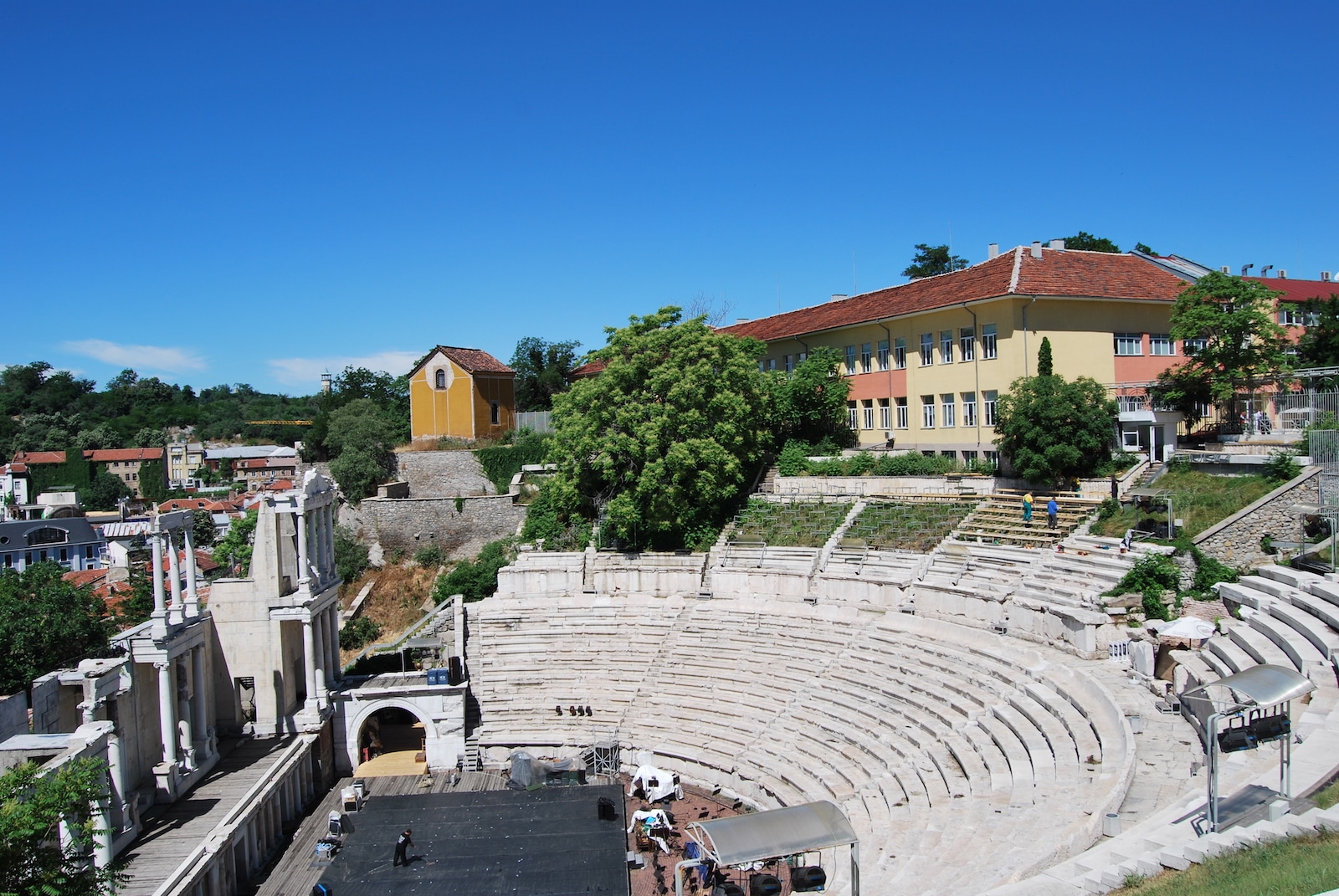
Plovdiv is one of Europe’s oldest cities, which is steeped in Roman history. An Old Town has become the highlight, but nearby Roman ruins have become popular for the outdoor theater.
A quaint town also awaits guests in Plovdiv, which has made it a hotspot for tourists to settle into and explore the local culture. As the number one place to visit in Bulgaria, Plovdiv is more popular than Sofia.
Veliko Tarnovo

Home to the Tsarevets Fortress, Veliko Tarnovo is the second most visited area in Bulgaria. The small city was once the capital of Bulgaria during the Second Bulgarian Kingdom.
Quiet lanes and stone cottages give Veliko Tarnovo a unique character. For those that climb up to the fortress, you’ll be rewarded with views of the city and Yantra River.
Varna

Varna is the biggest beach resort area in Bulgaria and a hit with tourists. A National History Museum and Archeological Museum give visitors insights into the area’s history, including the discovery of the world’s oldest gold treasure.
But not everything is ancient in Varna and tourists can party the night away in the city’s busy bars and nightclubs.
Sozopol

Much quieter than Varna, Sozopol is another beachside resort in Bulgaria, which is well-known for its stunning Old Town. Modernity has yet to reach Sozopol, which makes it a historical town with its own unique charm.
With plenty of beaches and bars, you can sit back and relax as you sip your drink or dazzle your taste buds with a good meal.
Bansko and Pamporovo
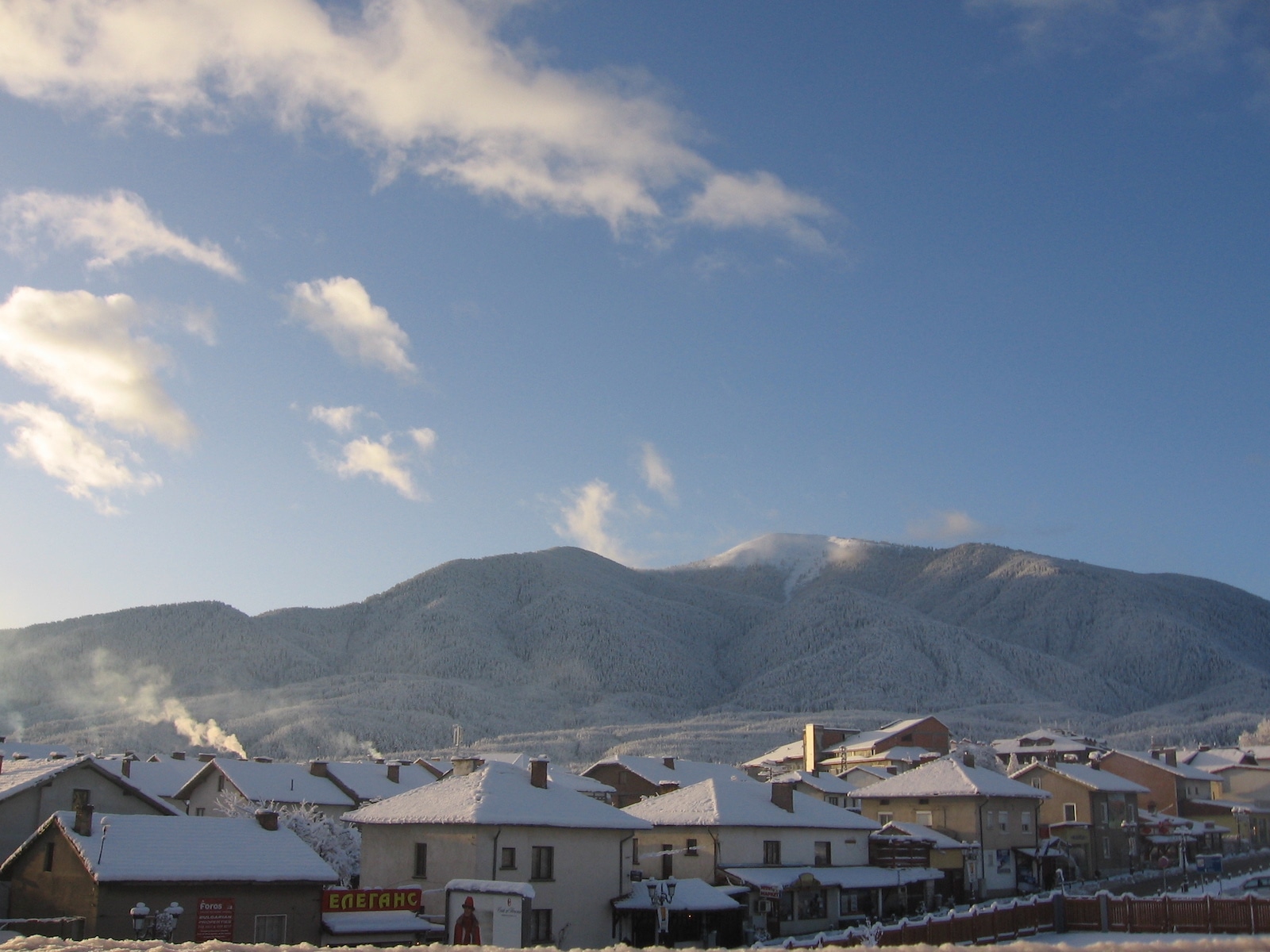
With the longest ski run in Bulgaria, Bansko is the most popular town for skiers and snowboarders in the winter months. The Old Town is the perfect place to stay and relax after you’ve spent a long day on the slopes.
For families, Pamporovo is the best ski resort to visit because it features smaller hills that are suited to children. With plenty of snowfall, Pamporovo is open well into the summer months, which gives young learners the best chance to hone their skills on the mountain.
Points of Interest
As if there weren’t enough to explore in the cities, Bulgaria is also filled to the brim with hotspots that have become points of interest for tourists. With natural and manmade wonders, as well as plenty of world heritage sites, you’ll need to plan your time well if you want to enjoy everything the country has to offer.
Here are some of the top tourist destinations in Bulgaria.
Rila Monastery
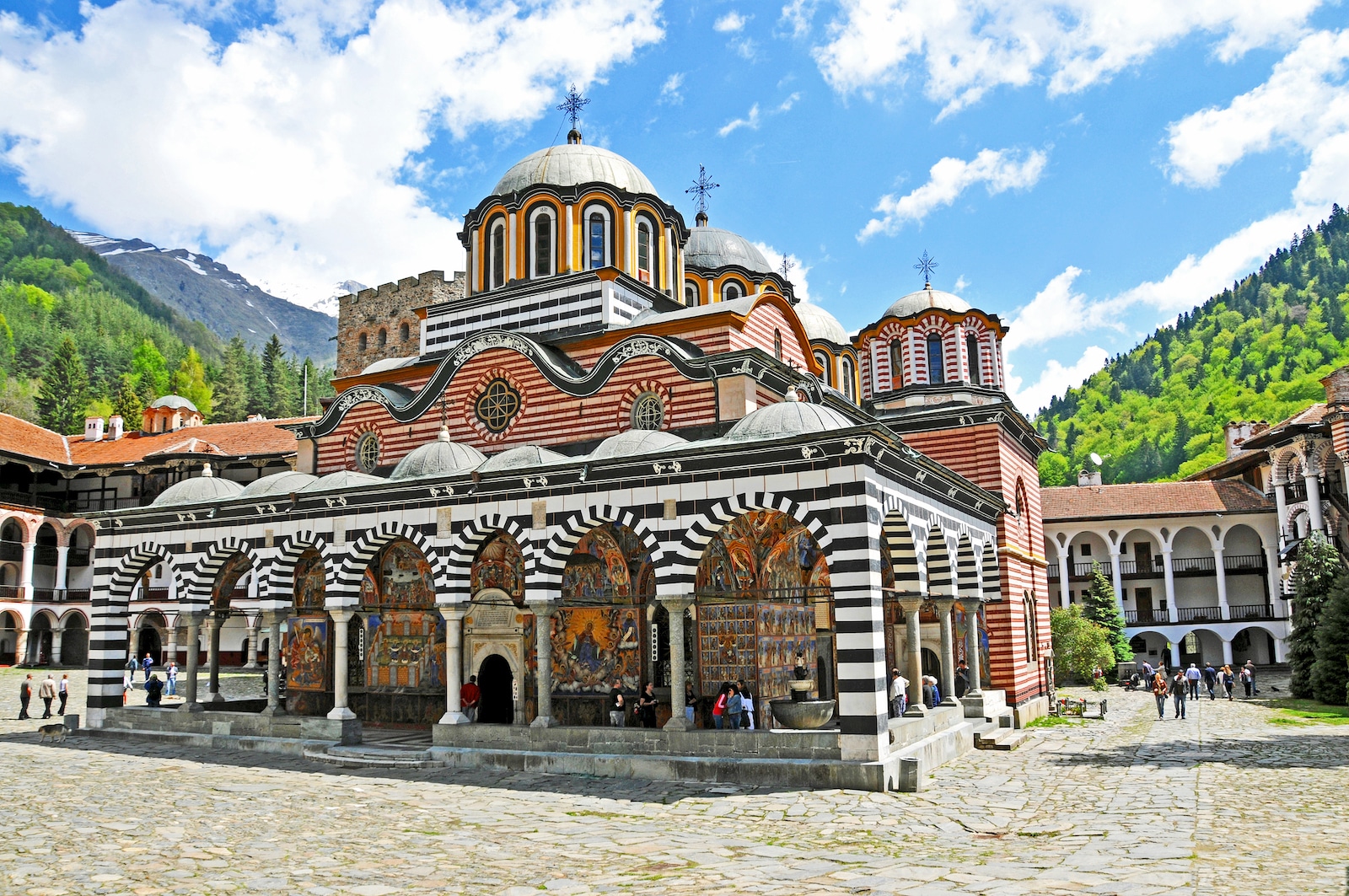
Built during the 10th century, the Rila Monastery is a working monastery that is inhabited by about 60 monks. The complex is surrounded by the Rila Mountains, which only adds to the peace and tranquility of the monastery’s character.
Visitors can also enjoy catching a glimpse of rare religious paintings, artifacts, and carvings, which have been created throughout the years.
Pirin National Park

Threatened by overdevelopment for ski areas, Pirin National Park is the most stunning conservation area in all of Bulgaria. The park has been named a national treasure because of its towering peaks and glacial lakes.
Visitors can say in the park in traditional huts or camp under the stars. Bears and boars call the area home, so visitors do need to be cautious of their surroundings.
Buzludzha Monument
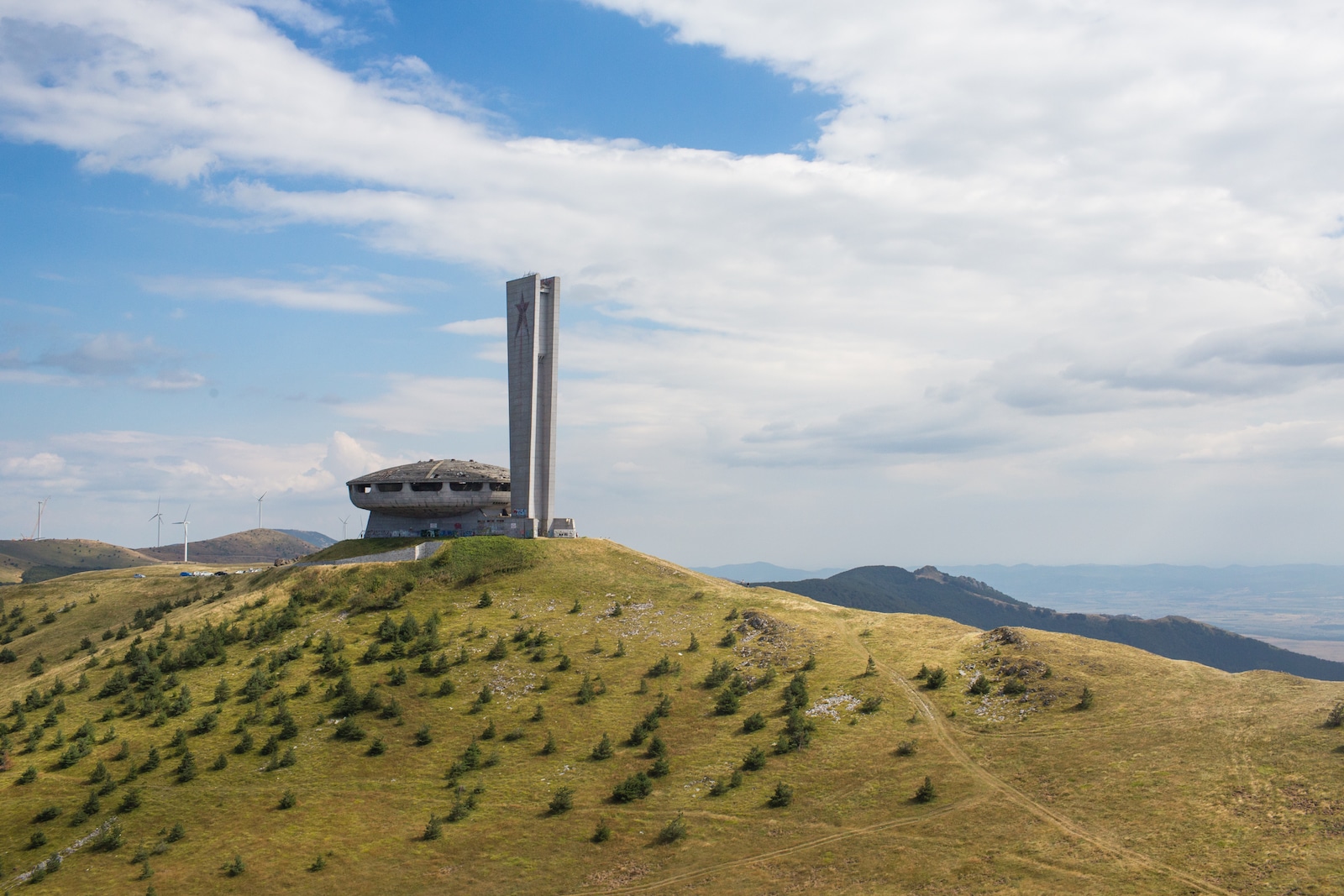
A remnant of the country’s soviet past, the Buzludzha Monument is an intimidating structure that has been left abandoned in the mountains. The large dome ceiling is beginning to deteriorate, and the walls have been covered in graffiti, but the sheer size of the structure makes it worth the visit if you’re in the area.
Tourists who climb up the steps of the monument will also be rewarded with an excellent view of the mountains and valleys below.
Krushuna Waterfalls

Cascading over limestone rocks, Krushuna Waterfalls is one of Bulgaria’s hidden beauties. The waterfalls are over 60 feet tall and sourced from a hidden cave.
Visitors can climb up the rock formations to view the cave and drink from the spring. At the base of the waterfalls, there are gentle pools of water, which are safe for swimming.
“Land of Roses”

Ancient and stoic, Bulgaria is the Balkan’s best-guarded secret treasure. The close proximity to Greece, Turkey, and Romania means that most tourists choose to skip this little country.
Yet, Bulgaria is rich in culture and drop-dead gorgeous in appearance, which makes it a destination that you don’t want to miss. Whether you’ve come to explore this little slice of heaven or take a deep dive into the area’s history, Bulgaria doesn’t disappoint.


 What Is Belgium Most Famous For?
What Is Belgium Most Famous For?